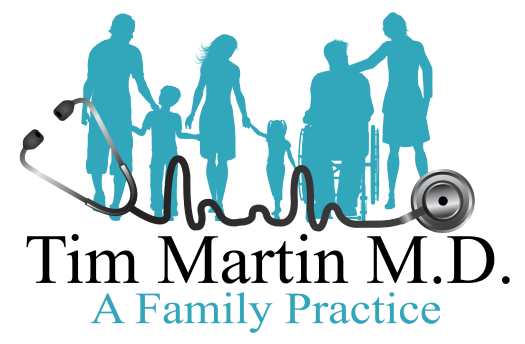
If you’ve been dependent on opioids and worked hard to get sober, you know sobriety is a lifelong commitment. No matter how committed you are, at some point, there’s a chance you may relapse. In fact, studies show the odds of relapse are higher for opioid addiction than any other drug addiction.
At Tim Martin M.D., board-certified physician Dr. Tim Martin and our care providers understand the courage you must have to take on opioid dependence and the challenges it brings. Our treatment program for opioid dependence for patients in Abilene, Texas, can free you from the chains of opioids and provide help when you find yourself struggling to stay sober.
One of the first steps in preventing or coming back from an opioid relapse is to recognize the signs and take immediate action. We’ve put together this article to help you do just that. Read on to learn what to do when you feel yourself slipping.
First: Understand why you’re relapsing
Though they aren’t pleasant, relapses are a fact of recovery for many people struggling with addiction. People on opioids have an even higher chance of relapse because of the serious and lasting effects opioids have on the way your brain functions.
Opioids attach to receptors in your brain that reduce your perception of pain and increase feelings of pleasure as endorphins are released. These feelings of pleasure drive opioid addiction and cause cravings.
When you’re a chronic user of opioids, your brain decreases endorphin production. The result? You lose the feeling of pleasure and crave opioids to help get it back. These feelings act as triggers for relapse.
When you stop taking opioids, your body goes through withdrawal. This leads to unpleasant symptoms that can be hard to handle. Since these withdrawal symptoms don’t go away quickly, your chances of relapse are high.
Although everyone is at risk for relapsing, certain factors may increase the likelihood that you’ll struggle with relapse. These include:
- Past intravenous use of opioids
- History of high doses of opioids
- Not seeking help with recovery
Next: Recognize the signs of relapse
Relapse begins before you begin taking opioids again. Knowing what to look for can ensure you get the help you need. Here are the signs that opioid relapse is on the way:
Romanticizing opioid use
Romanticizing or thinking about opioid use in an idealistic way is often one of the first stages of relapse. If you find yourself thinking about how good you felt while using and looking back on your use through a positive filter — even if you don’t start taking opioids again — it’s time to get help if you want to prevent relapse.
Believing you aren’t addicted
Sometimes people recovering from drug dependence start to believe they aren’t really addicts and use opioids without becoming addicted. Thinking you can begin “casual” opioid use is another sign of relapse. If you recognize this in yourself, getting professional help can prevent you from relapsing.
Stress
Opioids help mask the feelings of stress by releasing endorphins, which boost feelings of pleasure and mask feelings of discomfort. When you become sober, all of the feelings you were masking with opioids resurface.
If you find yourself having trouble managing stress or if a life-changing event occurs that increases stress, even if it’s positive, like a new job or getting married, you’re at higher risk for relapse. Seeking help before you do is key.
Last: Seek professional help
Opioid addiction is difficult, and staying sober isn’t something you can do alone or will yourself through. Research indicates that seeking help and speaking to someone about the urge to use works to reduce the urge and help you think more rationally about your addition.
At Tim Martin M.D., our team understands the challenges opioid dependence brings, and we’re here to help you through, including times of relapse. We also know that chronic opioid use affects your brain chemistry, making it harder to stay sober.
Medication therapy helps prevent relapses and makes it easier to address the psychological aspects of addiction. Dr. Martin has helped many people overcome opioid dependence with SUBOXONE® therapy.
SUBOXONE is a medication created to help your body adjust when it’s no longer supplied with opioids, making it easier to stay sober. If SUBOXONE isn’t right for you, our practice can provide similar medications, like ZUBSOLV® and BUNAVAIL®.
To get you the support you need, Dr. Martin can refer you to private therapists and Narcotics Anonymous. This added support helps your recovery and reduce your chances of relapse.
Are you in recovery from opioid dependence and feel yourself slipping? Don’t wait to get help. Contact the Abilene office of Tim Martin M.D. to schedule a consultation, or request a telehealth appointment today!
